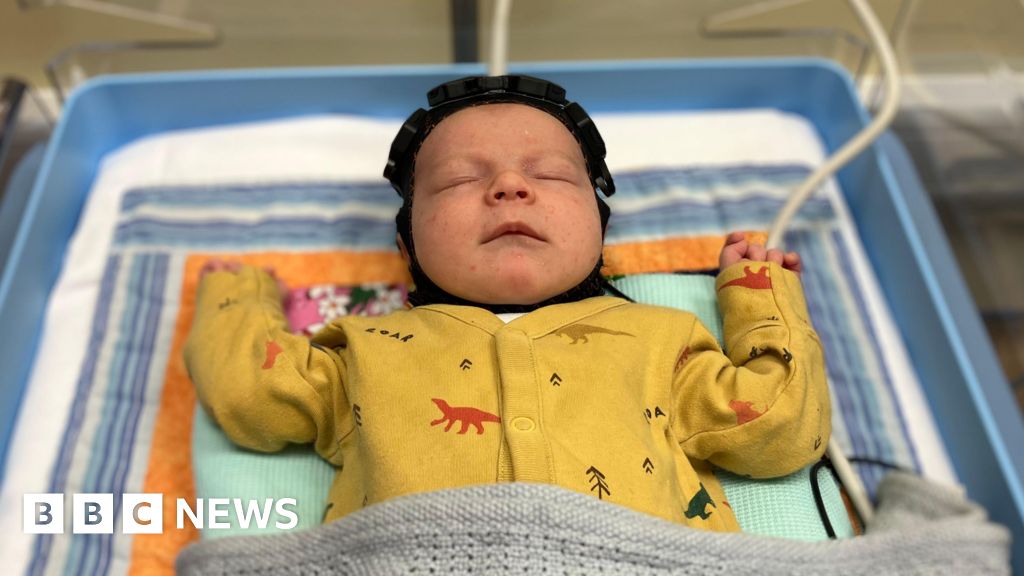
"Three-week-old Theo is fast asleep in a cot, unaware he is helping to trial new technology that could change the lives of others. Dr Flora Faure is gently fitting him with a small black cap that looks like a swimming cap, or something a rugby forward might wear. It is covered with hexagonal lumps, containing technology that monitors how his brain is working."
"In the weeks leading up to and following birth, our brains change every day. Brain injury in newborns is a major reason for lifelong disability, and a programme to reduce brain injury in childbirth is currently being rolled out across the NHS. The injury can affect the brain's ability to communicate with the body, leading to conditions such as epilepsy, which causes seizures, or cerebral palsy, which affects movement and coordination."
A prototype neonatal cap integrates high-density diffuse optical tomography and functional ultrasound to monitor both oxygenation near the brain surface and blood flow deeper in the neonatal brain. The cap is non-invasive, covered with hexagonal sensor modules, and is being trialled on newborns at the Rosie Maternity Hospital in Cambridge. Early combined measurements aim to detect brain injuries that can cause lifelong disabilities such as epilepsy, cerebral palsy and learning difficulties, improving prediction of outcomes. Early diagnosis could speed interventions and tailoring of care, potentially enabling hospital deployment within the next decade.
#neonatal-brain-monitoring #functional-ultrasound #diffuse-optical-tomography #cerebral-palsy #neonatal-care
Read at www.bbc.com
Unable to calculate read time
Collection
[
|
...
]